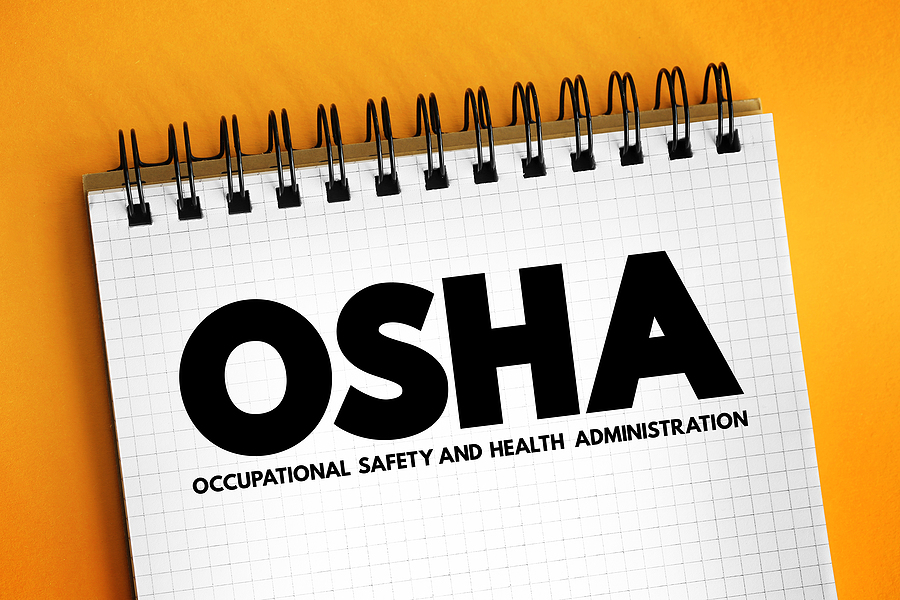OSHA Injury and Illness Recordkeeping Fundamentals Every New Mexico Contractor Should Know

When a staffing agency provides temporary workers to an organization, in most cases, the staffing agency and the organization that receives the temporary workers, commonly known as the host employer, are the employers of those workers.
Both employers share some of the responsibility for defining employment terms and ensuring that they comply with the law. Questions about whose employer is accountable for providing safety and health safeguards are typical in structures of employment that involve many employers working together. This advisory explains how to determine who is responsible for documenting work-related illnesses and injuries on the OSHA 300 log for temporary workers.
Only one employer’s injury and sickness log (under 29 CFR 1904.31(b)) should be used to record injuries and illnesses (4). Most of the time, the host employer is the one that is liable for keeping track of any accidents or illnesses that occur among temporary workers.
The task of keeping track of injuries and illnesses is delegated according to the level of monitoring. According to 29 CFR 1904.31(a), employers must keep a record of the diseases and injuries sustained by temporary employees if they oversee those individuals daily. “In addition to stating the output, product, or result to be done by the person’s job, the employer supervises the details, means, techniques, and procedures by which the task is to be completed,” which is the definition of “day-to-day supervision.” See Question and Answer 31-1 on the OSHA website at www.osha.gov/recordkeeping. (In essence, an employer is doing day-to-day supervision when that employer manages situations that provide the possibility of dangers and guides the worker’s actions around those hazards, as well as exposure to those hazards.) Most of the time, host employers are responsible for providing this level of monitoring.
Even while the staffing agency can have a representative present in the host employer’s workplace, the mere fact that this person is there does not necessarily mean that the recordkeeping obligations have been transferred to the staffing agency. Suppose the host employer is responsible for providing day-to-day supervision of the worker. In that case, they are also responsible for keeping a record of any accidents or illnesses that occur to the worker.
Even without direct supervision, the non-supervising employer (often the staffing agency) is partially responsible for its employee’s safety and health. Therefore, the staffing agency must constantly contact its personnel and the host firm to guarantee that any accidents or illnesses are correctly reported and documented.
A communication of this kind also notifies the staffing agency of any current dangers in the workplace and any preventative actions that need to be taken to safeguard its employees.
After an employee has been injured or become unwell, there must be ongoing contact for the employee who is documenting the incident to learn how the case turned out.
The agency providing the employee and the employer providing the job are responsible for establishing a method through which employees can promptly report work-related injuries and illnesses. The staffing agency and host employer must also let each employee know specificially how to report work-related injuries and illnesses. In addition, current and former workers, as well as personal representatives and approved employee representatives for either group, have the right to inspect injury and sickness records (29 CFR 1904.35).
The host company and the staffing agency should share information concerning injuries and illnesses to maintain healthy and safe working conditions. The staffing agency should be informed if a temporary worker suffers an accident or sickness, and the host company is aware of it. This will ensure that the staffing agency is mindful of its employees’ potential risks. Equally, if a staffing agency becomes aware of an accident or sickness, it must alert the host company. This will allow for the possibility of future injuries to be avoided, as well as for the case to be documented. When a worker reports an accident or sickness to one employer, the processes for notifying the other employer about the incident should be established by the staffing agency and the host business as a best practice. This will guarantee that both employers are kept in the loop. The specifics of how this communication will take place are supposed to be laid out very clearly in the contract text.
It is essential to remember that the OSHA regulation makes it illegal to retaliate against a worker who has reported an accident or sickness on the job. On the website for OSHA Recordkeeping, which may be found at www.osha.gov/recordkeeping, you can get further information on the recordkeeping obligations of OSHA. The OSHA Temporary Worker webpage, accessed at www.osha.gov/tempworkers, has additional resources and information about the protection of temporary workers. OSHA recognizes the occupational safety and health programs of twenty-five states and two territories as meeting its standards for operation. The rules enforced by the conditions are at least as effective, although they may have additional or different requirements. On the website www.osha.gov/dcsp/osp, you may find a list of the State Plans.
